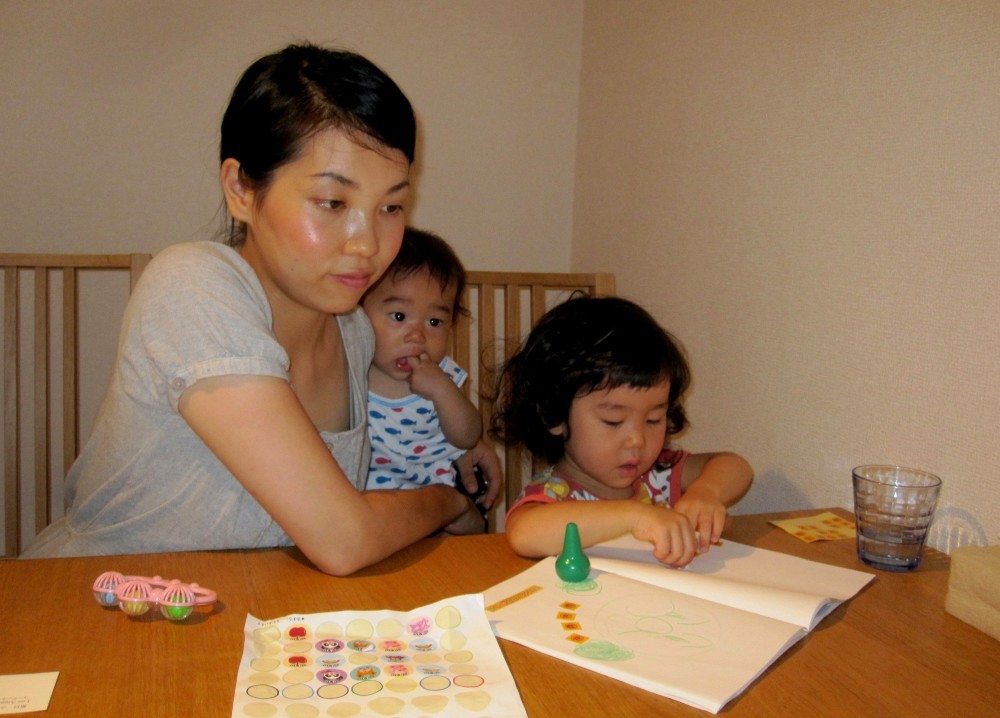By Miki Yabuki
The Japan News, Tokyo / Asia News Network
WWR Article Summary (tl;dr) From daycare to organizational consulting, even cooking classes at their own homes where customers can come along with their children, Japanese women are launching businesses inspired by ideas they came up with as homemakers.
The Japan News, Tokyo / Asia News Network
“Put items you don’t use very often on the upper shelves,” said Tomoko Kaneuchi, a certified professional organizing consultant, when she visited a condominium apartment in Chiba City to give the resident advice on how to organize the kitchen.
Kaneuchi, 42, is the mother of three boys and one girl aged from 4 to 13. While raising her four children, she gives advice on home organization by visiting the homes of individuals mainly in the Tokyo metropolitan area and giving lectures and seminars.
Previously she had been “a homemaker who was poor at tidying up,” she said with a wry smile.
She changed 12 years ago, after her then 1-year-old eldest son put some foundation makeup into his mouth in a room in utter chaos. It made her feel a sense of danger.
“There are so many things within children’s reach that could cause an accident,” she thought, and began learning how to organize her home. She obtained a professional organizing adviser Level 1 certification in 2012. In 2014, she launched her business, hoping to contribute to society with the skills she had learned.
She started her activities based on her own home. When she introduced in a blog how she organizes her home, her way of tidying up by using dead space such as that under the dining table attracted attention.
“Making people happy — that brings a new purpose into my life that I didn’t have when I was a full-time homemaker,” she said.
Mama’s Smile, a day nursery in Saitama city, has been run by Minako Kondo, a former full-time homemaker, since 2012.
Kondo, 40, has two boys aged 6 and 4. Three months after her eldest son was born, she had difficulty raising her child and started looking for a day nursery to help take care of her son. But most of the nurseries accept a child only when a mother gives a good reason, such as working or being sick. Believing that there must be other mothers facing the same problem, Kondo decided to open and run a facility herself.
She managed to secure the funds to start the business by using her savings and borrowing some money from her family. But it was even harder to find a site for the business. Many property owners rejected her, saying such things as “Children’s voices may be noisy” and “We’ll be in trouble if an accident happens.” Among the reasons was that Kondo was a full-time homemaker.
She finally found a property for the business a year later.
Having a babysitting certification herself, Kondo runs the nursery along with colleagues who are certified nursery staff and babysitters. Her nursery accepts babies before their first birthdays without requiring any justifications, and is open on weekends and holidays.
The facility became popular through word of mouth. With some homemakers joining the operation because they sympathized with Kondo’s efforts after reading her blog, the nursery now has eight franchisees.
“If all mothers could get some space and are able to raise their children with a smile, that should have a good influence on the children,” Kondo said.
Yumiko Sekimoto, a consultant who is well versed in starting homemaker businesses, said: “Homemakers are aware of the needs of daily life, and it is notable that many of them launch businesses that satisfy the needs of consumers.”
According to Sekimoto, some have opened nail salons and cooking classes at their own homes where customers can come along with their children. Those are examples of businesses inspired by ideas they came up with as homemakers.
“Another appealing aspect of starting your own business is that you can decide your working hours. I believe [starting a business] will become more valuable as an option for homemakers,” Sekimoto added.
Start small, grow gradually
It is not easy for homemakers to start a business.
According to the Japan Finance Corporation Research Institute, many homemakers do not have much money for their personal use and lack access to start-up funds. In addition, they tend to take a long time to get their businesses on track because they bear a heavier burden of household chores and child rearing than men do, and lack business experience if they have left their work due to childbirth and child-rearing.
Tatsunori Fujii, the group leader of the institute, says: “They should not push themselves too hard in the beginning. They are advised to make a business plan in which the business starts at a small size and is expected to grow gradually.”
Homemakers should not develop their ideas alone. The business plan should become more concrete after getting advice from entrepreneurs with more experience or from learning in seminars. The centers set up by chambers of commerce and industry and local governments to help start-ups can be useful. It is recommended to review the plan after three to six months while monitoring the situation.
Cooperation from family members is also indispensable to establishing work-life balance. “It is also important to consult with family members beforehand and decide how to share the housework,” Fujii said.
[Points for homemakers when starting a business]
–Consult with family members beforehand about the burden of household chores and child-rearing
–Precisely divide your family budget from business costs
–Broaden your outlook by participating in seminars and communicating with entrepreneurs who have more experience
–Set prices, taking business profitability into consideration
(Based on advice from Tatsunori Fujii and Yumiko Sekimoto)














































































































































































































































































































































































